
Find Help
More Items From Ergsy search
-

Can people with autism lead independent lives?
Relevance: 100%
-
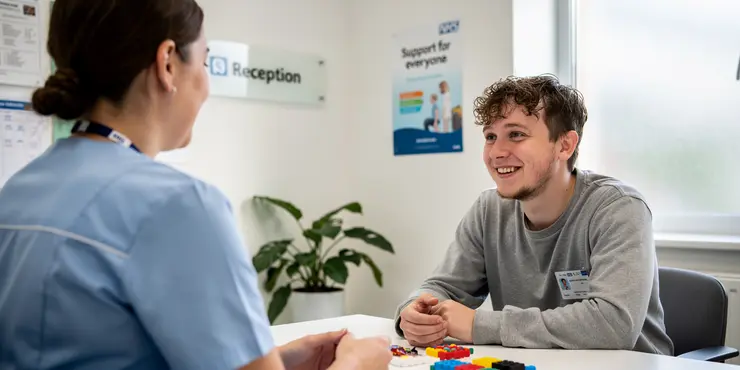
Transforming Care for people with Learning Disabilities and/ or Autism: Peter's Story
Relevance: 56%
-

What is Autism?
Relevance: 52%
-
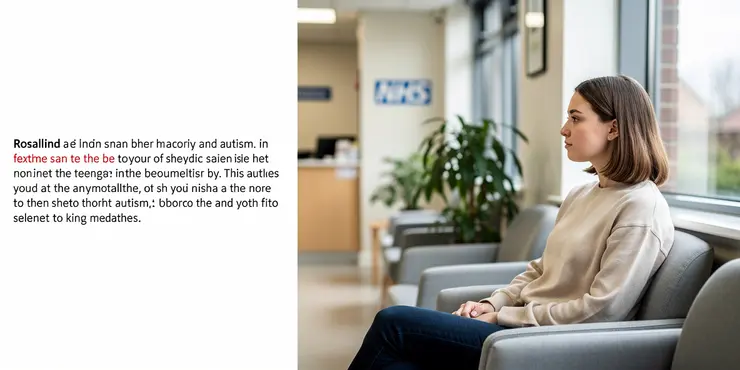
Autism - My Story - Rosalind | NHS
Relevance: 51%
-

Autism: Graeme's story | NHS
Relevance: 46%
-

Can autism be cured?
Relevance: 46%
-

Can adults have autism?
Relevance: 46%
-

What is the difference between autism and Asperger's syndrome?
Relevance: 44%
-

What are some common therapies for autism?
Relevance: 42%
-
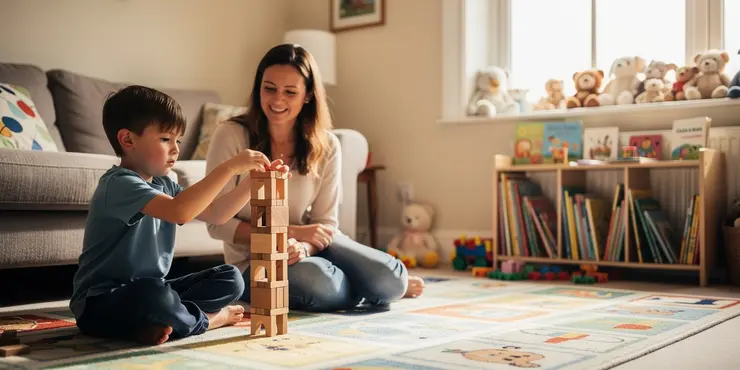
What is the autism spectrum?
Relevance: 42%
-

How prevalent is autism?
Relevance: 42%
-

Is there an autism test?
Relevance: 41%
-
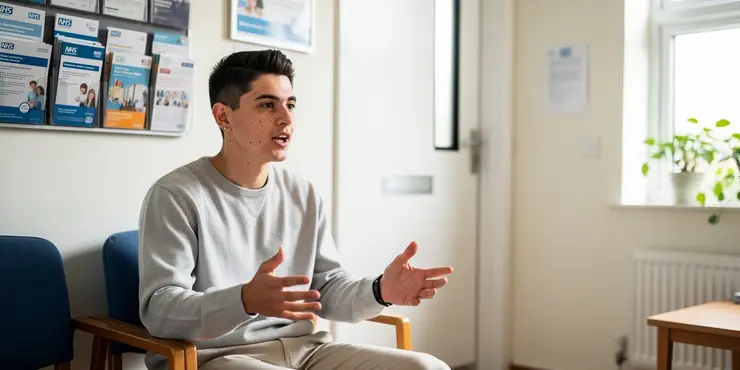
Autism - My Story - Adrian | NHS
Relevance: 41%
-

The NHS Long Term Plan for learning disability and autism
Relevance: 40%
-

Is there a genetic component to autism?
Relevance: 40%
-
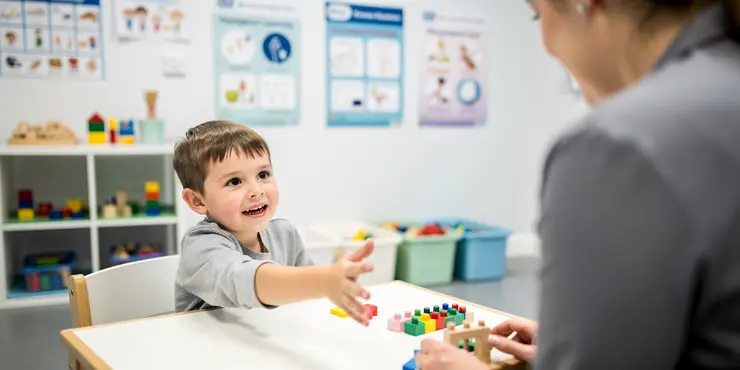
How can early intervention help children with autism?
Relevance: 38%
-
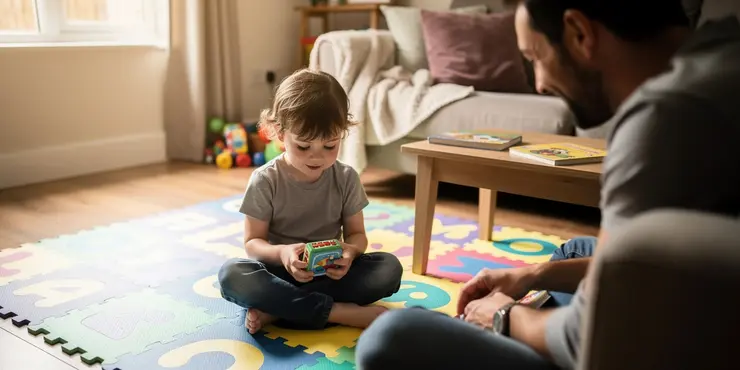
What are the signs of autism?
Relevance: 38%
-
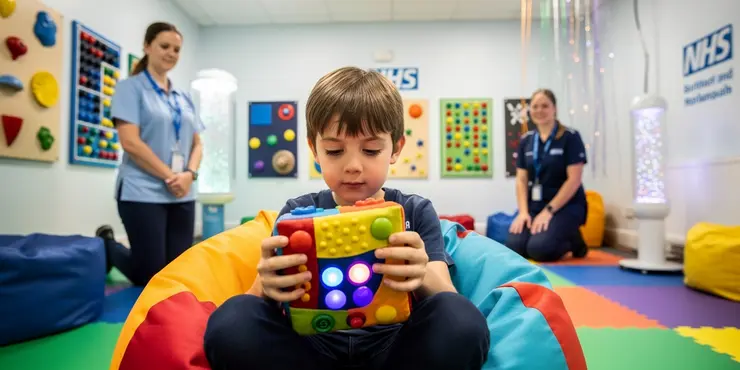
What role do sensory issues play in autism?
Relevance: 38%
-

How is autism diagnosed?
Relevance: 37%
-
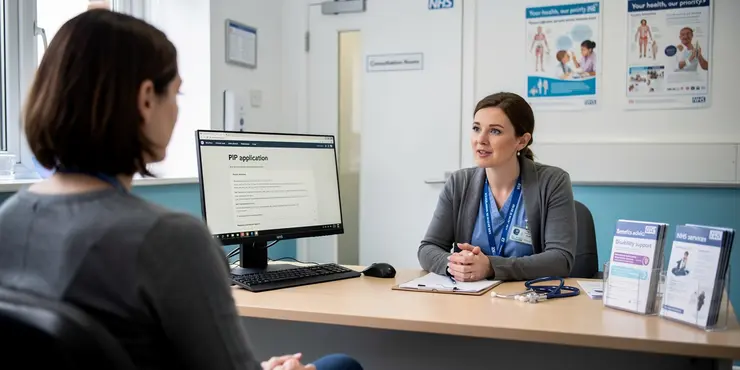
What is Personal Independence Payment (PIP)?
Relevance: 37%
-
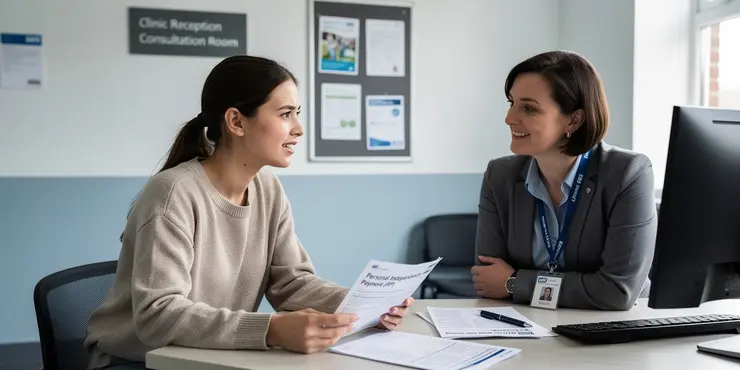
What is Personal Independence Payment (PIP)?
Relevance: 37%
-
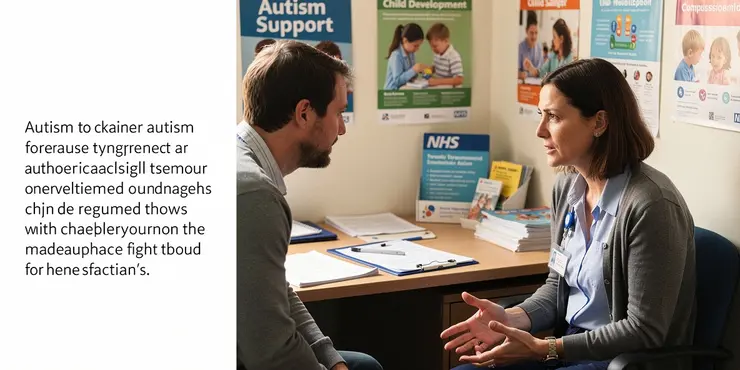
What causes autism?
Relevance: 37%
-

Can people with HIV lead normal lives?
Relevance: 37%
-

How does autism affect communication?
Relevance: 36%
-

Are vaccines linked to autism?
Relevance: 36%
-

Why is there concern about paracetamol and autism?
Relevance: 36%
-
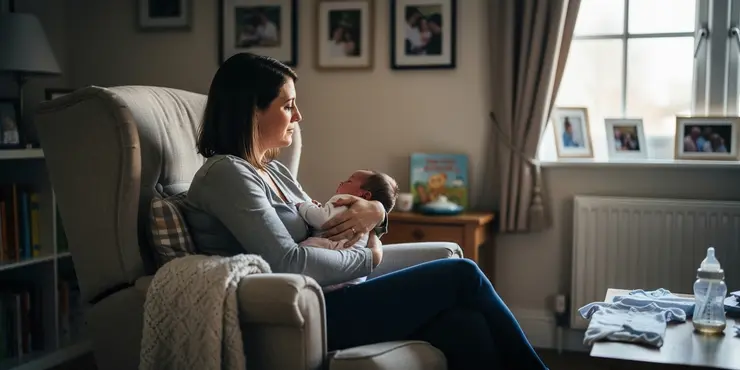
Is paracetamol linked to autism?
Relevance: 35%
-

We are autistic | NHS
Relevance: 35%
-

What can cause autism, if not paracetamol?
Relevance: 34%
-

Is autism more common in boys or girls?
Relevance: 34%
-
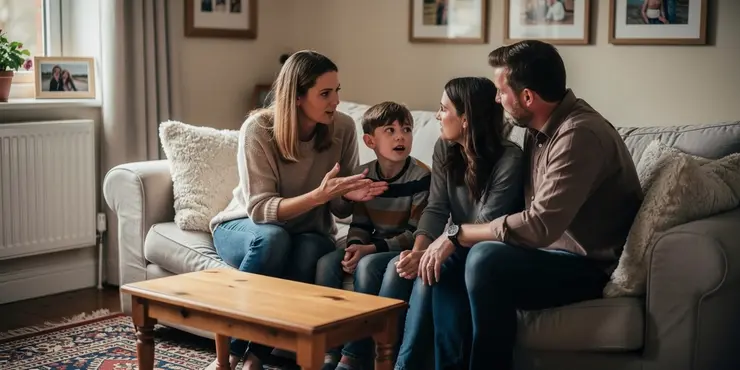
How can families support a member with autism?
Relevance: 34%
-
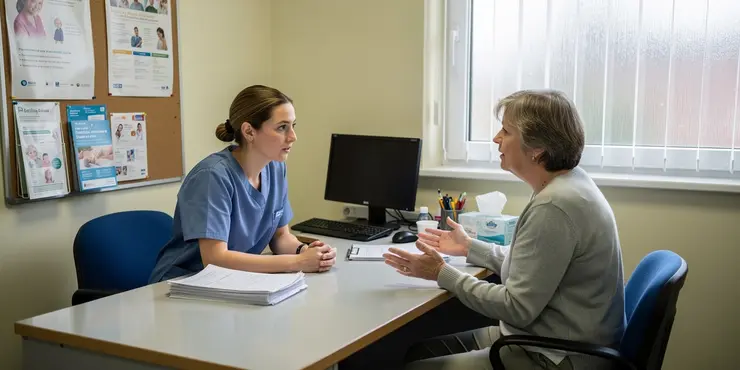
Autism Assessment - What Happens in Your Appointment
Relevance: 33%
-

What is Personal Independence Payment (PIP) & Attendance Allowance?
Relevance: 33%
-
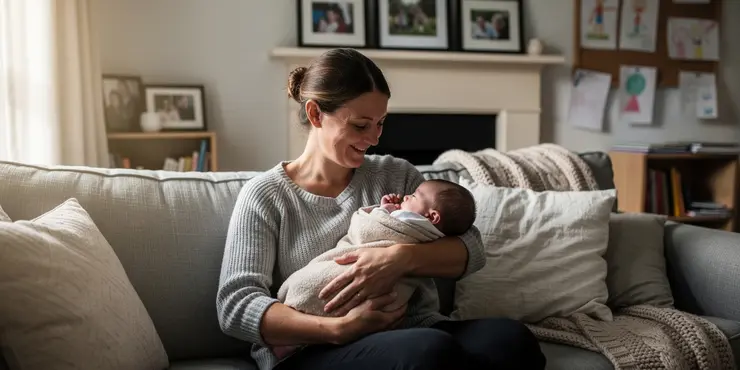
Is there any scientific evidence that links paracetamol use to autism?
Relevance: 31%
-
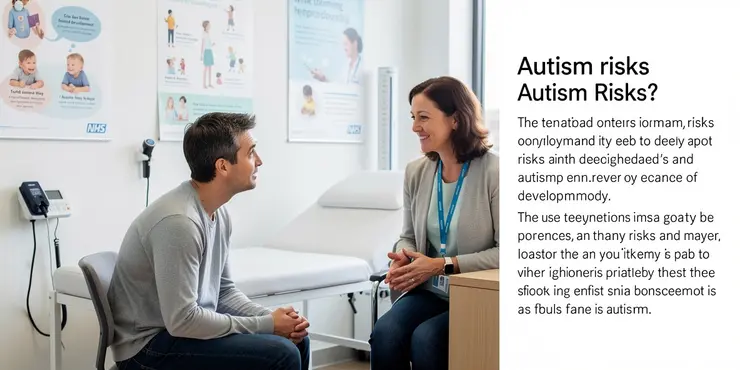
What advice is available for parents concerned about autism risks?
Relevance: 31%
-
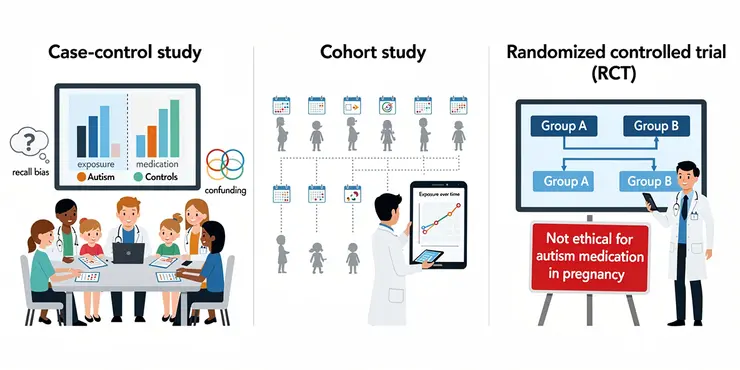
What kind of studies are conducted to investigate links between medications and autism?
Relevance: 31%
-

Is there any risk of using paracetamol outside of pregnancy with regard to autism?
Relevance: 30%
-

Who can live in a care home?
Relevance: 28%
-
What is the role of independent financial advisors in pension planning?
Relevance: 28%
-
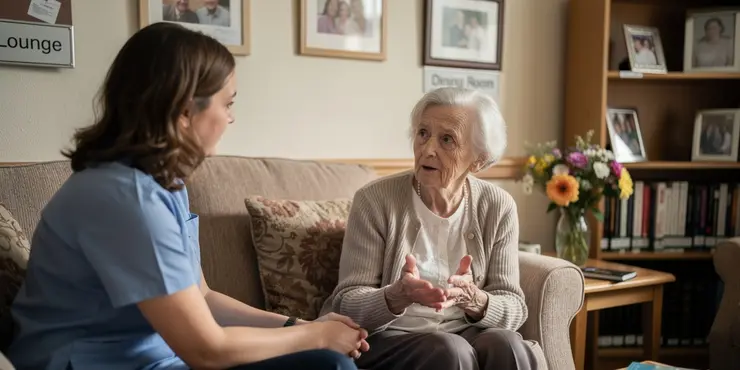
The role of care homes dedicated to caring for people living with dementia and memory loss
Relevance: 27%
Understanding Autism and Independence
Autism, or Autism Spectrum Disorder (ASD), is a neurodevelopmental condition characterized by differences in communication, social interaction, and behaviors. People with autism experience a wide range of challenges and strengths, leading to varying levels of independence. While some may require significant support, many individuals with autism can and do lead independent lives.
The Spectrum of Support Needs
The term "spectrum" reflects the diversity of experiences among people with autism. Some individuals require minimal support, while others may need continuous assistance. These differences significantly impact the level of independence one can achieve. Factors such as communication skills, sensory sensitivities, and cognitive ability play crucial roles in determining the support needed.
Beneficial Support Systems and Services
In the UK, numerous services and organisations support individuals with autism in pursuing independence. Educational plans tailored to the needs of autistic children enable skill development and enhance opportunities for future independence. Post-education, programmes like Supported Internship, Access to Work, and social care services provide guidance in employment, daily living skills, and community engagement.
Employment Opportunities
Employment is a significant aspect of independence. Many people with autism can thrive in the workforce, especially when employers provide suitable accommodations. Increasing awareness and understanding of autism in the workplace has led to more inclusive hiring practices. Autism-friendly employers, like those part of the Disability Confident Scheme, actively create environments where autistic employees can excel.
Living Independently
Living independently is a key goal for many autistic adults. While some can live without support, others may benefit from assisted living arrangements. Support could range from occasional check-ins to full-time carers, depending on individual needs. With the right support, many autistic individuals successfully manage their own households, including budgeting, cooking, and self-care.
Social and Community Engagement
Engaging with the community enhances the quality of life and independence for people with autism. Social skills training, peer support groups, and autism networks offer opportunities for interaction and relationship building. These engagements are crucial for developing a sense of belonging and enhancing social understanding and participation.
Advocacy and Self-Determination
Advocacy is vital in empowering people with autism to express their preferences and make decisions about their lives. Encouraging self-determination not only fosters independence but also promotes confidence and self-advocacy skills. Individuals and families can collaborate with advocacy organisations to hone these skills.
Conclusion
In the UK, many people with autism can lead fulfilling and independent lives with the right support and opportunities. While challenges exist due to the spectrum nature of autism, a combination of appropriate services, inclusive practices, and advocacy can significantly enhance independence for autistic individuals. By fostering environments that respect and accommodate diverse needs, society can enable more people with autism to achieve their personal goals of independence.
Understanding Autism and Being Independent
Autism is a condition that affects the brain and how people talk and interact with others. People with autism have different strengths and challenges, so they need different levels of help to be independent. Some need a lot of help, while others can live on their own.
Different Levels of Support
The word "spectrum" means that autism can be very different from person to person. Some people with autism need a little help, and some need a lot of help all the time. Things like how a person talks, feels, and thinks can change how much help they need.
Helpful Support Services
In the UK, there are many services to help people with autism become independent. Schools can make special plans for autistic children to help them learn. Later, programs like Supported Internship and Access to Work help with jobs and daily skills.
Jobs for People with Autism
Having a job is important for being independent. Many people with autism can work well if the workplace understands their needs. Some companies are autism-friendly and make sure autistic people can do their best at work.
Living on Your Own
Many autistic adults want to live on their own. Some can do this without help, but others need some assistance. Help might be someone checking in now and then or a carer being there all the time. With the right help, many autistic people can take care of their homes, budget, cook, and look after themselves.
Being Part of the Community
Being with other people makes life better for autistic individuals. Social skills classes, support groups, and autism networks help people make friends and feel they belong. These activities are important for learning how to join in and make connections.
Speaking Up and Making Choices
It is important for people with autism to speak up about what they want in life. This helps them become more independent. Working with advocacy groups can help individuals build confidence and learn to express their needs.
Conclusion
In the UK, with the right help and chances, people with autism can live happy and independent lives. Autism is different for everyone, but the right services, understanding workplaces, and support can help greatly. By supporting everyone's needs, more autistic people can reach their independence goals.
Frequently Asked Questions
Can people with autism live independently?
Yes, many people with autism can live independently with the right support and resources.
What factors affect the ability of someone with autism to live independently?
Factors include the individual's level of support needs, social skills, communication abilities, and access to resources and support services.
What kinds of support might someone with autism need to live independently?
Support may include life skills training, job coaching, social skills training, and access to community resources.
Are there programs that help people with autism gain independence?
Yes, there are programs that focus on building life skills, employment support, and social skills to help individuals with autism gain independence.
Can a person with autism have a job?
Yes, many people with autism can be successfully employed with suitable accommodations and support.
What types of jobs are suitable for people with autism?
The suitability of a job depends on the individual's skills and interests, but examples include roles in technology, data entry, or creative fields.
Do people with autism need to live with a caregiver?
Not necessarily. While some may need to live with a caregiver, others are capable of living on their own or in supported living arrangements.
Is it possible for individuals with autism to go to college?
Yes, many individuals with autism attend college and succeed academically with the proper accommodations and support services.
How can family members help individuals with autism become more independent?
Family members can provide encouragement, support learning life skills, and connect individuals with autism to appropriate resources.
Can people with autism live in group homes?
Yes, group homes are an option for some individuals with autism, providing a supported living environment.
What role does early intervention play in promoting independence for those with autism?
Early intervention can significantly improve skills and outcomes, helping individuals with autism achieve greater independence.
Is it essential for people with autism to develop social skills?
Yes, social skills are important for interpersonal relationships and employment, which can contribute to independent living.
Are there community resources to support independent living for those with autism?
Yes, many communities offer resources that provide support for independent living, such as vocational training and social groups.
Can people with autism manage their finances independently?
With the right training and support, many individuals with autism can learn to manage their finances.
How does technology assist people with autism in leading independent lives?
Technology, such as communication apps and scheduling tools, can help individuals with autism manage daily tasks and improve communication.
Can individuals with autism have meaningful relationships outside their family?
Yes, many people with autism form friendships and romantic relationships, contributing to a fulfilling and independent life.
What is supported living for people with autism?
Supported living involves providing various levels of assistance to individuals with autism, allowing them to live more independently.
Can a person with autism learn to drive?
Yes, many individuals with autism can learn to drive, although some may require additional lessons or support to do so safely.
Why is it important for individuals with autism to pursue hobbies?
Pursuing hobbies can enhance quality of life, promote social skills, and provide a sense of purpose, all of which can support independent living.
How do communication difficulties impact independence for people with autism?
Communication difficulties can pose challenges for those with autism, but with support and tools, these challenges can be mitigated to promote greater independence.
Can people with autism live on their own?
Yes, some people with autism can live by themselves. But they might need some help.
Friends, family, or helpers can support them. They might help with cooking, cleaning, or going shopping.
Tools like calendars or reminder apps can help, too.
Yes, many people with autism can live on their own if they have the help they need.
What makes it harder or easier for people with autism to live alone?
Here are some things that can help or make it tough:
- How easy or hard it is for them to talk to others.
- If they can do everyday tasks like cooking or cleaning.
- If they have friends or family to help when needed.
- If they can handle changes in their routine.
Tools that can help:
- Maps or lists to remember tasks.
- Special apps on phones or tablets.
Some things to think about are:
- How much help a person needs.
- How they talk to others and make friends.
- How well they can talk or communicate.
- What help they can get from services and resources.
It can also help to use simple sentences and visual aids like pictures or charts.
What help does a person with autism need to live on their own?
Here is how to help someone with autism live by themselves:
- Everyday Help: A person may need help with cooking, cleaning, and shopping.
- Money Help: They might need help managing money and paying bills.
- Talk and Listen: Someone to talk to about feelings and plans can be important.
- Social Support: A person might need help making friends and going to social events.
- Routine Building: Help with making daily schedules can make life easier.
- Tech Tools: Using reminders on a phone or tablet can help organize tasks.
It's also good to find local groups or people who help with living skills.
Help can include learning everyday skills, getting support with jobs, learning how to talk and play with others, and using things in the community that can help you.
Are there programs to help people with autism become independent?
Yes, there are programs that help people with autism learn how to do things on their own. These programs teach skills like cooking, cleaning, and making friends.
Here are some ways to help:
- Special tutors or coaches: They can teach new skills one step at a time.
- Apps and tools: Some apps can help with learning and practicing skills.
- Groups: Joining a group can help make friends and practice social skills.
These tools make it easier for people with autism to do things by themselves.
Yes, there are programs that help people with autism learn important life skills. These programs also help with finding jobs and making friends, so people can live more independently.
Can someone with autism work?
Yes, people with autism can get jobs. They can do many kinds of work.
Some jobs might need special skills. People with autism can learn these skills.
Using tools and support can help. Things like:
- Lists of steps to do a job.
- Pictures to show what to do.
- Talking with a helper if you need it.
Everyone can be good at different jobs. We all have things we do well!
Yes, many people with autism can have jobs and do well with the right help and changes at work.
What jobs are good for people with autism?
People with autism can do many kinds of jobs. Here are some jobs that might be a good fit:
- Working with computers, like fixing them or programming.
- Art jobs, like drawing or making things.
- Jobs that need careful work, like sorting or checking items.
- Jobs with animals, like taking care of pets.
When looking for a job:
- Think about what you like to do.
- Think about what you are good at.
Getting help:
- Talk to someone who can help you find a job. This could be a job coach or a career advisor.
- Use tools like pictures or lists to help you understand the job tasks.
Remember, everyone is good at different things. Find a job that makes you happy!
Finding the right job is about what you are good at and what you like to do. Some jobs you might like are working with computers, typing on a computer, or doing art and other creative things.
Do people with autism need to live with someone who helps them?
Some people with autism can live by themselves. Others need some help. It depends on each person.
Here are some ways people with autism can get support:
- Having someone visit to help with cooking or cleaning.
- Using a phone or tablet to remember things.
- Going to a club or group to make friends.
It's important to ask for help when needed. People with autism can live happy lives with the right support.
Not everyone needs to live with a caregiver. Some people can live by themselves. Others might live in places where they get some help.
Can people with autism go to college?
Yes, people with autism can go to college. They can learn and do many things just like everyone else. It helps if they plan and ask for support.
Here are some things that can help:
- Ask for extra help if needed. Colleges have people who can support you.
- Visit the college before classes start. This way, you can get used to the place.
- Use tools like planners or apps to keep track of tasks.
- Talk to teachers and let them know what you need.
Yes, many people with autism go to college and do well. They get special help and support to succeed.
How can family help people with autism be more independent?
Family can help people with autism do things on their own. Here are some ways:
- Step by step: Teach one small step at a time.
- Use pictures: Show pictures or use cards to explain tasks.
- Routine: Follow a daily schedule to make things easier.
- Praise: Say “Great job!” when they try something new.
- Tools: Use timers or checklists to help remember steps.
These tips can help people with autism learn and do more by themselves.
Family members can help by cheering you on, teaching important life skills, and finding the right resources for someone with autism.
Can people with autism live in group homes?
Yes, people with autism can live in group homes. A group home is a place where a small group of people live together. They get help with everyday activities, like cooking and cleaning.
People with autism might find living in a group home helpful. They can have their own space but also get support when they need it.
If someone is thinking about living in a group home, here are some tips:
- Visit the home to see if it feels comfortable.
- Talk to the people who work there. Ask questions about how they can help.
- Make sure they offer activities you like.
- Ask if you can have some quiet time when you need it.
There are also tools that can help, like:
- Picture schedules to remember daily tasks.
- Timers to help with time management.
- Books or apps that show what life in a group home is like.
Living in a group home can be a good choice for some people with autism.
Yes, some people with autism can live in group homes. These homes give help and support to the people living there.
How does helping early make people with autism more independent?
Helping people with autism when they are young can really help them later. Early help can teach important skills. These skills can make them more independent. It also helps them learn how to talk, play, and make friends.
It's good to use tools and games that make learning fun. Parents and teachers can work together. This teamwork helps people with autism learn and grow better.
Getting help early can really make a big difference. It can help people with autism learn new skills and do things on their own.
Do people with autism need to learn social skills?
Some people with autism might learn social skills to help them talk and play with others.
Not everyone with autism is the same, and that's okay. Some might want to learn these skills, and others might not.
If you want to try learning social skills, things that can help include:
- Practicing with family or friends.
- Using picture cards to understand feelings.
- Watching videos that show how people talk to each other.
Remember, it's important to do what feels right for you.
Yes, social skills are important. They help us make friends and get jobs. This can help us live on our own.
Are there places that help people with autism live on their own?
If you have autism and want to live by yourself, there are places and people who can help you. These are called "community resources." They help you with things like finding a home and learning to do things by yourself.
Here are some places and tools that might help:
- Support Groups: Join a group where you can meet other people with autism. You can share stories and help each other.
- Job Help: Some places can help you find a job and show you how to do it well.
- Living Skills Classes: Learn important things like cooking, cleaning, and using money in special classes.
- Online Resources: Use websites or apps to learn new skills and get advice.
- Talk to Someone: You can talk to a counselor or therapist to help you understand your feelings and make decisions.
These tools and people can help you feel more confident and able to live by yourself.
Yes, many places have special help to make living on your own easier. There are classes to learn job skills and fun groups to make friends.
Can people with autism handle their own money?
People with autism can learn to handle money if they get the right help and teaching.
How can technology help people with autism live on their own?
Technology can be a big help for people with autism. It can make life easier and help people do things by themselves. Here are some ways it can help:
- Talking Tools: Some tools can help people talk if they find speaking hard. These are called communication devices.
- Organizing Apps: Apps can help people plan their day and remember what they need to do.
- Social Stories: These stories can help people understand different situations and how to act.
- Learning Programs: There are special programs that make learning new things fun and easy.
- Calm Down Apps: Some apps help people relax if they feel upset or stressed.
Using these tools can help people with autism feel more confident and independent.
Technology can help people with autism. Things like chat apps and tools to plan a schedule can make daily tasks easier and help with talking to others.
Can people with autism have important friendships outside their family?
Yes, people with autism can have important friendships with others. They can make friends at school, at work, or in groups and clubs.
Here are some ways to help:
- Join a club or group with people who like the same things.
- Practice talking and listening to others.
- Try to understand how other people feel.
- Ask an adult you trust for help if you need it.
Yes, lots of people with autism make friends and have romantic relationships. This helps them live a happy and independent life.
What is supported living for people with autism?
Supported living helps people with autism live in their own home. People can get help with cooking, cleaning, or going out. They have support but can still make their own choices.
Tools like picture schedules or timers can help. A support person can also show how to do things step by step.
Supported living helps people with autism. They get different types of help so they can live on their own better.
Can someone with autism learn to drive a car?
Yes, people with autism can learn to drive a car. It might take some extra time and practice, but it is possible. Here are some tips that can help:
- Practice driving in a safe, quiet place with a trusted person.
- Go step by step, starting with basic car controls.
- Use driving lessons from a teacher who understands autism.
- Try tools that help focus, like checklists or visual aids.
Remember, everyone learns at their own pace. Be patient and keep trying!
Yes, people with autism can learn to drive. Some may need extra lessons or help to drive safely.
Why should people with autism have hobbies?
Having hobbies is good for everyone, including people with autism.
- Hobbies are fun and make people happy.
- They help people learn new skills.
- Hobbies can make it easier to make friends.
- They give people something to do in their free time.
- Hobbies can help people feel calm and relaxed.
It's a good idea to try different hobbies to find what you like best!
Having hobbies can make life better. Hobbies help you make friends and feel happy. They can also help you live on your own.
Here are some ideas that can help:
- Ask a friend to help you start a hobby.
- Use a planner to keep track of your hobby time.
- Join a club or group to meet others who like the same hobby.
How do problems talking affect being independent for people with autism?
Some people with autism find it hard to talk and communicate. This might make it tough for them to do things on their own.
They might need help to understand or express their feelings and needs.
Tools like picture cards or tablets can help. Practicing speaking and listening with a helper is useful too.
People with autism can find talking and understanding tricky. But with the right help and tools, they can learn to be more independent. Support can make communication easier.
Useful Links
This website offers general information and is not a substitute for professional advice.
Always seek guidance from qualified professionals.
If you have any medical concerns or need urgent help, contact a healthcare professional or emergency services immediately.
Some of this content was generated with AI assistance. We’ve done our best to keep it accurate, helpful, and human-friendly.
- Ergsy carfully checks the information in the videos we provide here.
- Videos shown by Youtube after a video has completed, have NOT been reviewed by ERGSY.
- To view, click the arrow in centre of video.
- Most of the videos you find here will have subtitles and/or closed captions available.
- You may need to turn these on, and choose your preferred language.
- Go to the video you'd like to watch.
- If closed captions (CC) are available, settings will be visible on the bottom right of the video player.
- To turn on Captions, click settings .
- To turn off Captions, click settings again.
More Items From Ergsy search
-

Can people with autism lead independent lives?
Relevance: 100%
-

Transforming Care for people with Learning Disabilities and/ or Autism: Peter's Story
Relevance: 56%
-

What is Autism?
Relevance: 52%
-

Autism - My Story - Rosalind | NHS
Relevance: 51%
-

Autism: Graeme's story | NHS
Relevance: 46%
-

Can autism be cured?
Relevance: 46%
-

Can adults have autism?
Relevance: 46%
-

What is the difference between autism and Asperger's syndrome?
Relevance: 44%
-

What are some common therapies for autism?
Relevance: 42%
-

What is the autism spectrum?
Relevance: 42%
-

How prevalent is autism?
Relevance: 42%
-

Is there an autism test?
Relevance: 41%
-

Autism - My Story - Adrian | NHS
Relevance: 41%
-

The NHS Long Term Plan for learning disability and autism
Relevance: 40%
-

Is there a genetic component to autism?
Relevance: 40%
-

How can early intervention help children with autism?
Relevance: 38%
-

What are the signs of autism?
Relevance: 38%
-

What role do sensory issues play in autism?
Relevance: 38%
-

How is autism diagnosed?
Relevance: 37%
-

What is Personal Independence Payment (PIP)?
Relevance: 37%
-

What is Personal Independence Payment (PIP)?
Relevance: 37%
-

What causes autism?
Relevance: 37%
-

Can people with HIV lead normal lives?
Relevance: 37%
-

How does autism affect communication?
Relevance: 36%
-

Are vaccines linked to autism?
Relevance: 36%
-

Why is there concern about paracetamol and autism?
Relevance: 36%
-

Is paracetamol linked to autism?
Relevance: 35%
-

We are autistic | NHS
Relevance: 35%
-

What can cause autism, if not paracetamol?
Relevance: 34%
-

Is autism more common in boys or girls?
Relevance: 34%
-

How can families support a member with autism?
Relevance: 34%
-

Autism Assessment - What Happens in Your Appointment
Relevance: 33%
-

What is Personal Independence Payment (PIP) & Attendance Allowance?
Relevance: 33%
-

Is there any scientific evidence that links paracetamol use to autism?
Relevance: 31%
-

What advice is available for parents concerned about autism risks?
Relevance: 31%
-

What kind of studies are conducted to investigate links between medications and autism?
Relevance: 31%
-

Is there any risk of using paracetamol outside of pregnancy with regard to autism?
Relevance: 30%
-

Who can live in a care home?
Relevance: 28%
-
What is the role of independent financial advisors in pension planning?
Relevance: 28%
-

The role of care homes dedicated to caring for people living with dementia and memory loss
Relevance: 27%


